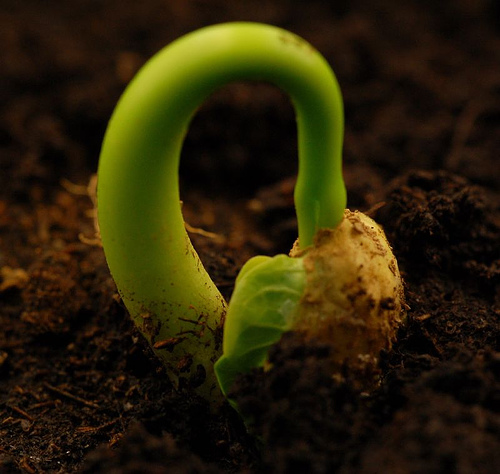Library soon to be source for seeds, not just books
Free seeds of all sorts will soon be available for lending at the Grand Forks and District Public Library.
The Seed Library, which is a joint partnership between the library and the Boundary Seed Bank Project, will allow library patrons to “borrow” seeds for planting. It’s like having Seedy Saturday all year round.
“I’m happy to say the library will be working on this adjacent project with the Seed Bank,” said library director Avi Silberstein. “People will be able to come in and borrow seeds the way they borrow a book and if, at the end, they can save some seeds and bring some back then that’s great … It’s also an opportunity for those who can’t afford to buy all those seed packets to grow their own food.”
“I’m feeling quite optimistic about how things have evolved,” said Sheila Dobie, director for the Boundary Seed Bank Project. This past year Dobie and some other members of the Grand Forks and Boundary Regional Agricultural Society (GFBRAS) went to a conference in Richmond, BC where they connected with a seed gatherers network and became inspired to start the library project up.
While the Seed Bank focusses on saving and keeping heritage, organic, open-pollinated, non-genetically modified seeds with a proven historical history within the Boundary area, there are a lot of seeds out there that are useful to residents that can’t be included in the bank, but also shouldn’t be wasted, said Dobie. So far they have 20 varieties in the collection but so many more left over from past Seedy Saturday Seed Share and Exchange events held every March.
The seed library would provide a place for those seeds and another opportunity to share them with the community, said Dobie.
Silberstein brings a unique perspective to the project. In fact, you could say he’s the most natural fit you could imagine. Besides being a librarian, Silberstein has worked in the organic farm industry and, for his Masters in Library Studies, he did a project about seed and tool lending libraries.
“I never fully expected I would be able to implement it,” said Silberstein.
He said anyone can donate seeds to the library, even mystery seeds, which is all part of the fun. He said having this venue may also help increase the Seed Bank Project collection because it will provide more opportunity to share seeds and the stories. The library also has a great collection of books on gardening and seed saving as reference for those who want to borrow seeds.
Silberstein and Dobie hope to have the library started up by this spring.
The seed library needs a shelving system to house the collection. Ideally they’d love an old-fashioned wooden card catalogue cabinet or some drawers, said Silberstein. Anyone who has such a thing can contact the library.
The new year will be an exciting time for the Boundary Seed Bank Project. Besides the library startup, the Boundary Seed Bank Project will be involved in a national program called the BAUTA Family Initiative on Canada Seed Security through the Unitarian Service Committee of Canada (USC). The Bauta family donated money to help establish a national sustainable seed collection and encourage biodiversity.
“We’re going to link into that as much as we can,” said Dobie of the program, which starts up in Feb. 2013.
The Boundary Seed Bank Project has applied for a micro-grant through the program to help bring more regional seeds from places like Nelson and Creston to the annual seed exchange.
For those interested in becoming involved in the Boundary Seed Bank Project, the next meeting is on Feb. 12, 2013 at 6 p.m. in the Grand Forks Library. You can also email Sheila Dobie at boundaryseedbank@gmail.com.
The annual Seedy Saturday Seed Share and Exchange is held in early March.
For more information about the BAUTA Family Initiative visit the Unitarian Service Committee of Canada website at http://usc-canada.org/what-we-do/canada/bauta-en/.






















